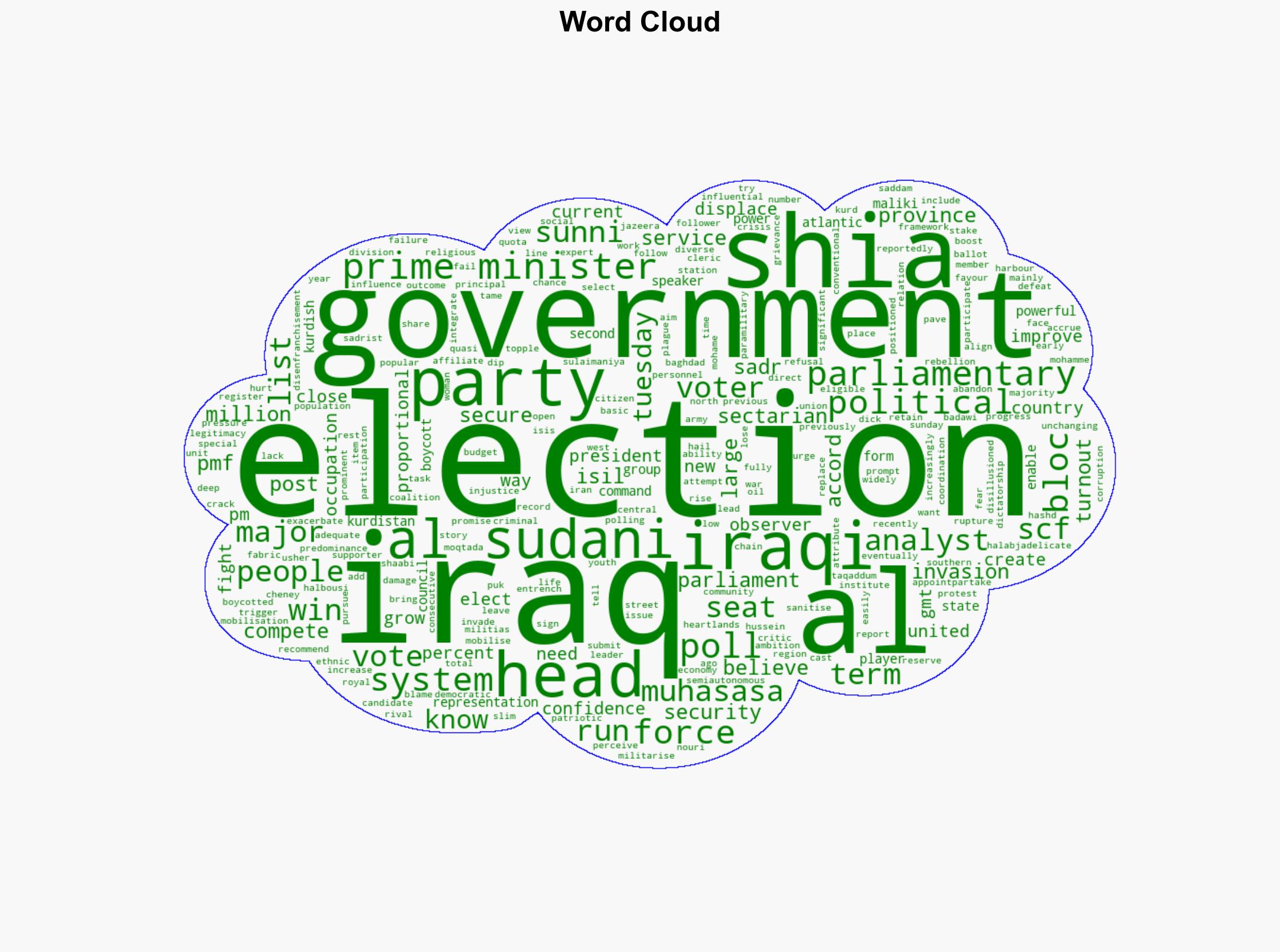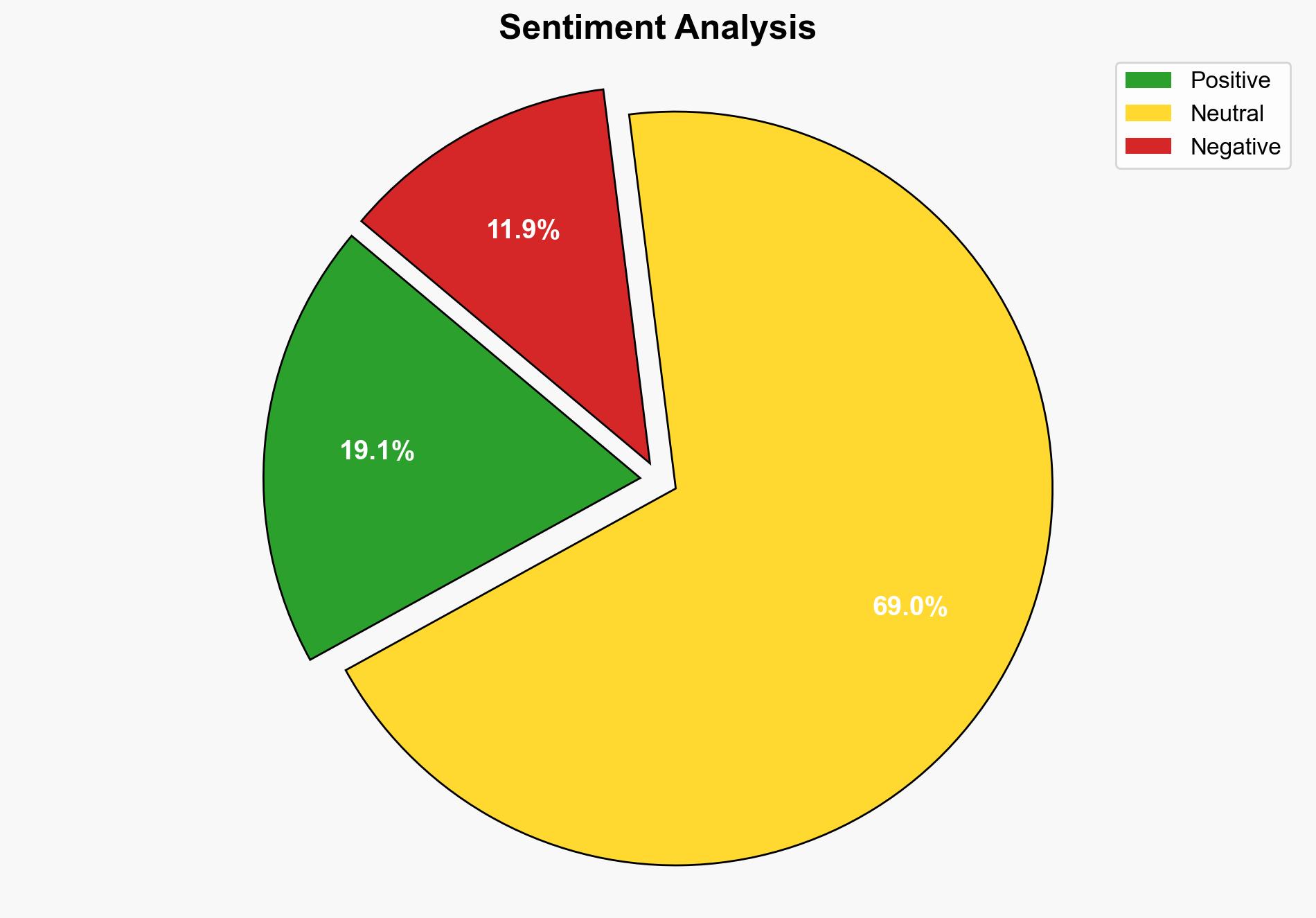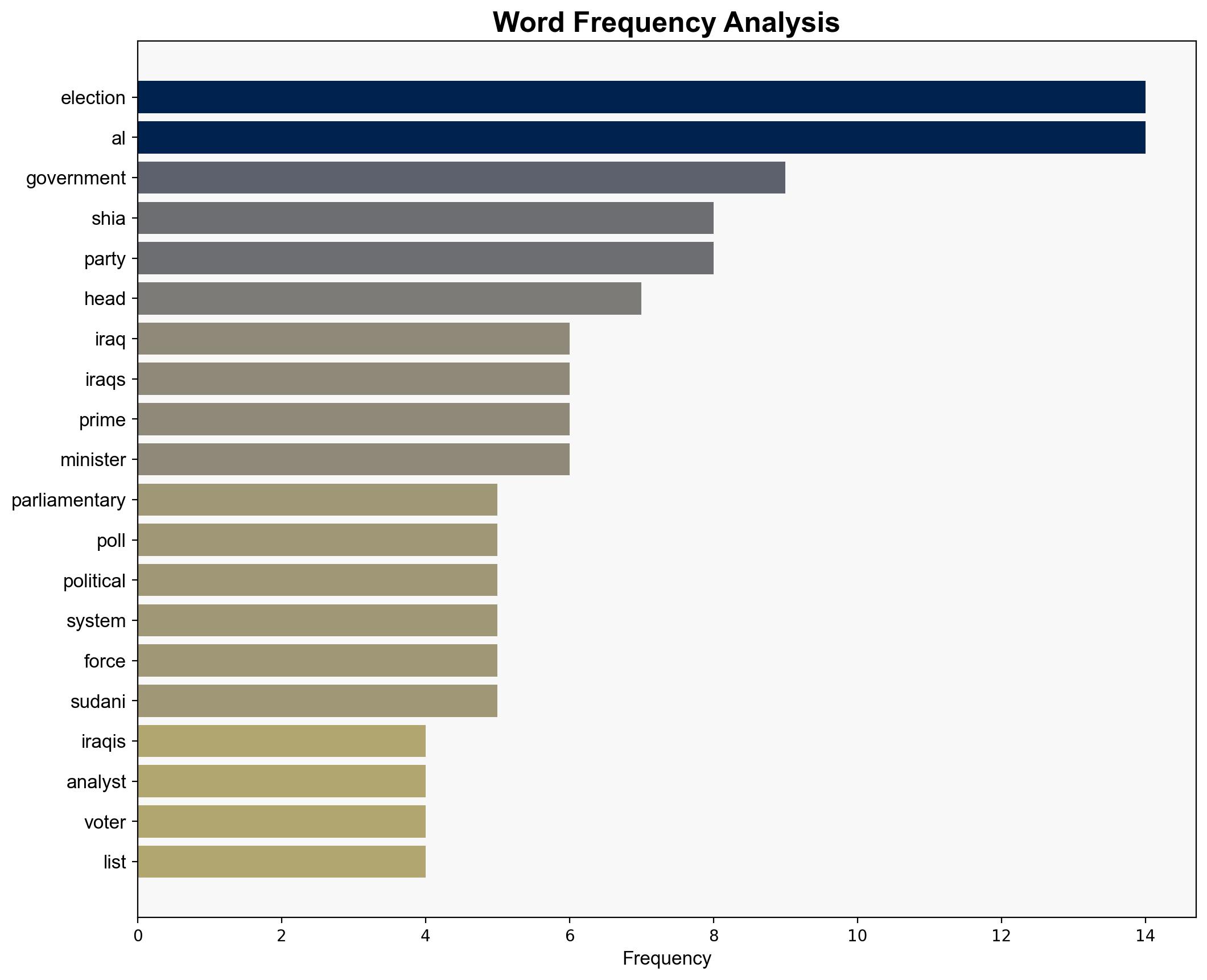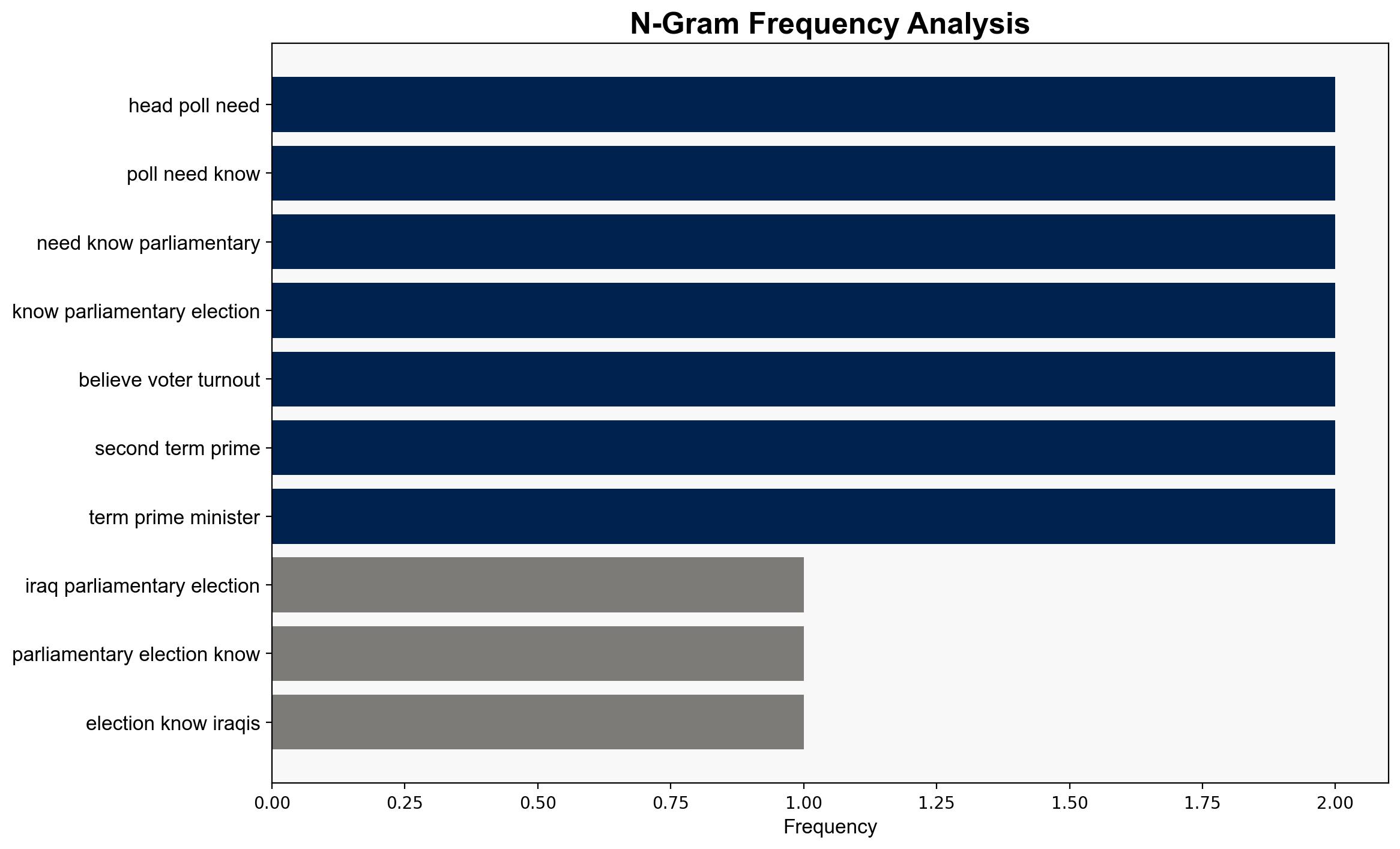Iraq parliamentary elections What we know – Al Jazeera English
Published on: 2025-11-10
Intelligence Report: Iraq parliamentary elections What we know – Al Jazeera English
1. BLUF (Bottom Line Up Front)
The most supported hypothesis is that the upcoming Iraqi parliamentary elections will result in a fragmented political landscape, with no single party or coalition gaining a decisive majority. This scenario is supported by the deep divisions within the Shia political bloc and the influence of sectarian and ethnic dynamics. Confidence level: Moderate. Recommended action: Monitor post-election developments closely to assess the stability of the new government and potential shifts in regional alliances.
2. Competing Hypotheses
1. **Hypothesis 1**: The elections will lead to a fragmented parliament with no clear majority, resulting in prolonged coalition negotiations and potential political instability. This is supported by the deep divisions within the Shia Coordination Framework and the absence of Moqtada al-Sadr’s participation, which could weaken the legitimacy of the elections.
2. **Hypothesis 2**: Despite the divisions, a dominant coalition will emerge, potentially led by the current Prime Minister, Mohammed Shia al-Sudani, due to strategic alliances and voter mobilization efforts. This hypothesis considers the potential for strategic voting by displaced populations and security personnel.
Using ACH 2.0, Hypothesis 1 is better supported due to the historical precedent of fragmented outcomes in Iraqi elections and the current political climate, which is marked by disillusionment and sectarian divides.
3. Key Assumptions and Red Flags
– Assumptions: The assumption that sectarian and ethnic divisions will continue to dominate voting behavior. The belief that Moqtada al-Sadr’s boycott will significantly impact voter turnout and legitimacy.
– Red Flags: Potential manipulation or suppression of voter turnout data. The possibility of external influence from regional powers seeking to sway election outcomes.
– Blind Spots: The role of emerging political movements or independent candidates that may not align with traditional sectarian lines.
4. Implications and Strategic Risks
– Political fragmentation could lead to governance paralysis, affecting Iraq’s ability to address economic and security challenges.
– Sectarian tensions may escalate if the election results are perceived as illegitimate, potentially leading to civil unrest.
– Regional powers may exploit the political vacuum to increase their influence in Iraq, impacting regional stability.
– Economic risks include potential disruptions to oil production and foreign investment due to political uncertainty.
5. Recommendations and Outlook
- Encourage diplomatic engagement with key Iraqi political figures to promote coalition-building and stability.
- Monitor regional actors’ involvement in post-election dynamics to anticipate shifts in alliances.
- Scenario Projections:
- Best Case: A stable coalition government forms quickly, leading to improved governance and economic recovery.
- Worst Case: Prolonged political deadlock results in civil unrest and increased foreign interference.
- Most Likely: A fragmented parliament leads to a weak coalition government, with ongoing challenges in governance and security.
6. Key Individuals and Entities
– Mohammed Shia al-Sudani
– Nouri al-Maliki
– Moqtada al-Sadr
– Tameem Badawi
– Mohammed al-Halbousi
7. Thematic Tags
national security threats, regional focus, political instability, sectarian dynamics





